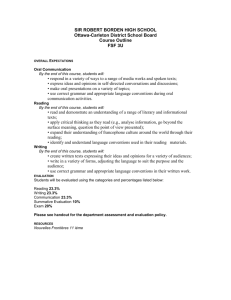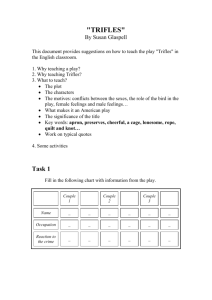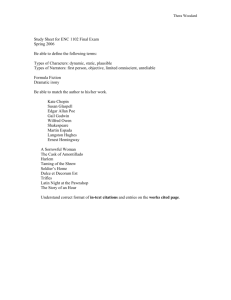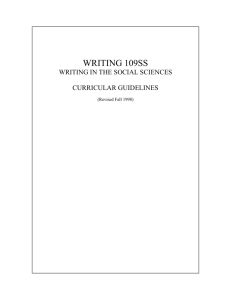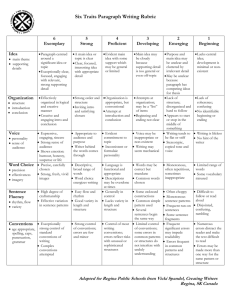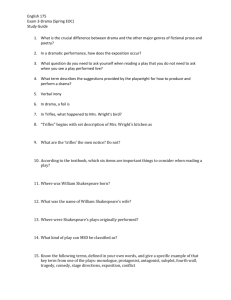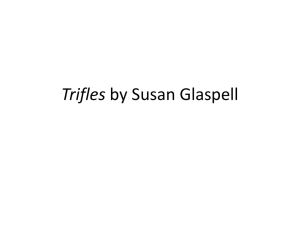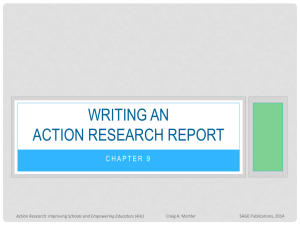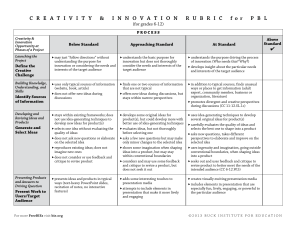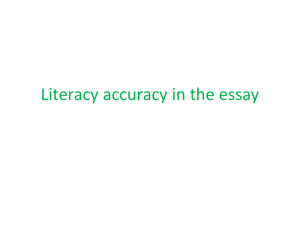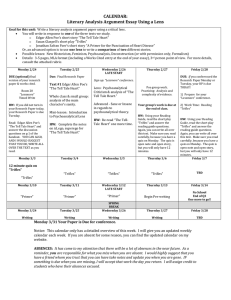Judging A Play
advertisement
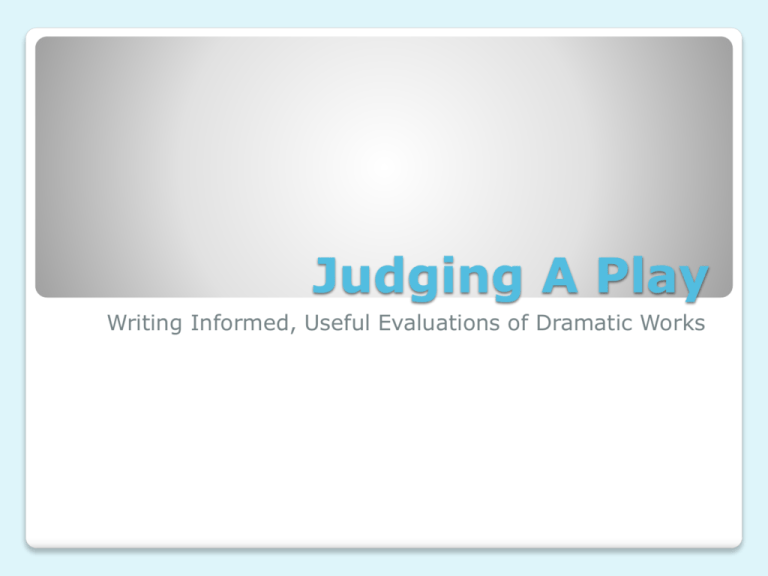
Judging A Play Writing Informed, Useful Evaluations of Dramatic Works There are many elements to consider when evaluating a play. Turn to page 1152 in Book Three Also, remember that theaters impose some conventions. ◦ Classic Greek Theater uses a CHORUS ◦ Many Shakespearian plays use SOLILIQUOY ◦ Some plays are MUSICALS. Evaluating a Play How well does the play fulfill its own conventions? ◦ If the play is a tragedy that wants you to feel for the protagonist, has it done that? Are the main characters fully rounded and believable? ◦ Do their actions follow from their personalities? Does the play rely on some deus ex machina device? What is the theme? ◦ Is it universal? How easy is it to apply to the real world outside of the play? Aspects for Critique What are your own reactions? ◦ It is impossible to truthfully judge a work without involving our own reaction to it. Be careful to distinguish a production from the play itself. ◦ It is important to distinguish between direction, acting, setting, etc that are elements of production and the script itself. Aspects for Critique What type of play is it? What are the conventions of this type of play? How well does the play fulfill those conventions? Are the main characters fully realized? Do their actions follow from their personalities, or do the actions seem imposed on them? Do any symbols stand out? What are their meanings? What emotion does the play evoke? What is the play’s theme? Is it universal? Checklist for Evaluation http://youtu.be/HE3kRr-wsNM TRIFLES Please turn to page 1164 and answer questions 7,12, and 14 about the play “Trifles” HINT- Reading the analysis of the play on pgs 1164-1168 may help answer some questions! (AKA “ A Jury of Her Peers”) Trifles

